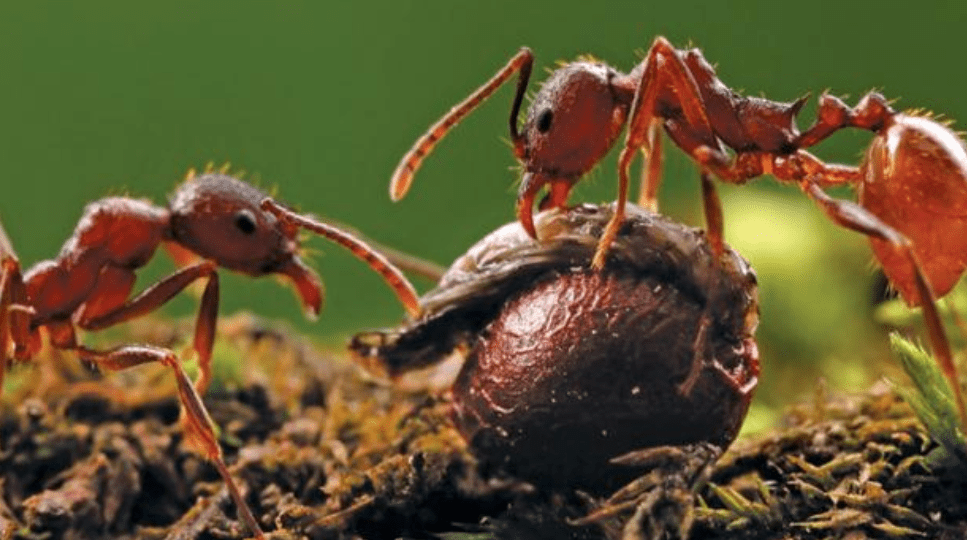
Ants Good for Garden Health: How These Insects Improve Your Soil
Let me tell you something you may not have realized before: ants are actually incredibly beneficial to your garden’s soil health. Yes, those tiny insects that seem to be a nuisance at picnics and backyard barbecues are actually doing wonders for your garden. From aerating the soil to breaking down organic matter, ants play a vital role in creating a healthy and thriving garden environment. So before you reach for the insect repellent, consider the positive impact these little creatures can have on your garden. In this post, we’ll explore the ways in which ants improve soil health and provide you with all the information you need to understand and appreciate their role in your garden ecosystem. You’ll walk away with a newfound appreciation for these tiny garden helpers and maybe even think twice before trying to get rid of them. Keep reading to learn how ants good for garden.
Table of Contents
ToggleUnderstanding the Role of Ants in the Ecosystem
A. The Basics of Ant Behavior
Those tiny ants may seem like a nuisance, but they are actually working hard to improve the health of your garden. Ants are natural soil aerators, meaning they create tunnels and cavities in the soil that allow air and water to penetrate deep into the ground, promoting healthy root growth and overall soil health.
In addition to aerating the soil, ants also play a crucial role in breaking down organic matter, such as dead plants and insects. They act as nature’s own composters, helping to decompose organic matter and recycle nutrients back into the soil, ultimately enriching the soil and providing essential nutrients for your garden’s plants.
So before you reach for the insect repellent, consider the important role that ants play in creating a thriving garden environment. Embrace these tiny creatures as valuable garden helpers and let them work their magic. By understanding and appreciating their role in the ecosystem, you’ll be taking a step towards creating a healthier and more sustainable garden. So next time you see ants in your garden, give them a moment of gratitude for all the hard work they do. Ants are indeed good for your garden, and they deserve our respect and appreciation.
B. Ant Species Commonly Found in Gardens
Ant Species Commonly Found in Gardens include the red imported fire ant, the carpenter ant, the odorous house ant, and the pavement ant. Each of these species serves its own unique purpose in the garden ecosystem, from aerating the soil to controlling pest populations. By allowing these ants to thrive in your garden, you are creating a balanced and natural environment that will benefit all of your plants and flowers. So before you rush to eliminate ants from your garden, think about the valuable role they play and consider welcoming them as a beneficial part of your garden community. You’ll be amazed at the positive impact they can have on your garden’s overall health and vitality.
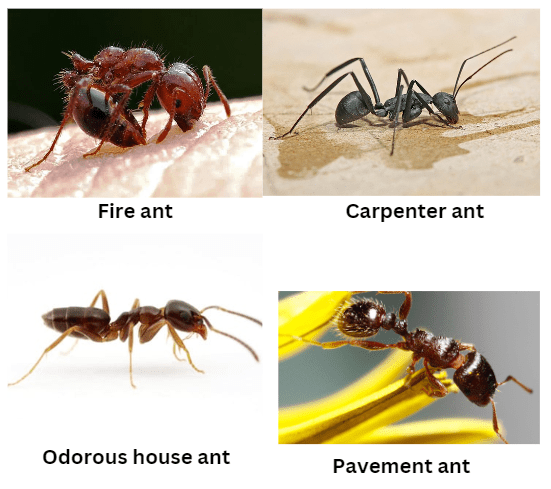
How Ants Improve Soil Structure
A. Tunneling and Soil Aeration
Ants play a crucial role in improving soil structure through their tunneling and soil aeration activities. As they dig their tunnels, they create channels through the soil, allowing air and water to penetrate deeper into the ground. This process, known as bioturbation, helps to aerate the soil, increase its porosity, and improve its overall drainage and nutrient availability. By allowing ants to thrive in your garden, you are essentially enlisting them as natural gardeners, helping to maintain healthy and fertile soil for your plants and flowers to thrive. So instead of viewing ants as pests, recognize and appreciate the valuable contribution they make to your garden’s soil structure. Embracing ants in your garden will ultimately lead to healthier and more vibrant plant life.
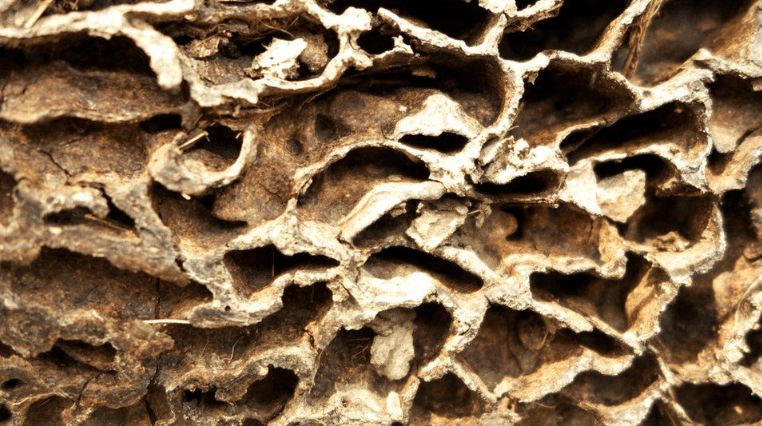
B. Enhancing Water Retention
Ants are incredible at enhancing water retention in the soil through their tunneling activities. As they create pathways and channels, they not only allow air and nutrients to penetrate the soil, but they also help to trap and retain water within the ground. This is essential for promoting healthy root growth and ensuring that your plants have a consistent and sufficient water supply. By supporting ants in your garden, you are essentially promoting a natural and sustainable method of maintaining moisture in the soil, reducing the need for excessive watering and conserving water resources. So instead of viewing ants as a nuisance, recognize the invaluable role they play in enhancing water retention and maintaining a healthy, thriving garden. Embrace the benefits of their tunneling and soil aeration activities and experience the positive impact on your plant life.
C. Increasing Soil Fertility
Supporting ants in your garden is not only beneficial for water retention, but also for increasing soil fertility. As ants tunnel through the soil, they break up compacted areas and mix organic matter, minerals, and nutrients, which are essential for the overall health of your plants. Their activities create a more hospitable environment for beneficial microorganisms and earthworms, which further contribute to the nutrient cycling process. By allowing ants to thrive in your garden, you are essentially promoting a natural and sustainable method of soil enrichment, reducing the need for synthetic fertilizers and chemical additives. Embrace the benefits of their tunneling and soil aeration activities and witness the positive impact on the fertility and productivity of your garden. So instead of viewing ants as a nuisance, recognize the invaluable role they play in enhancing soil fertility and promoting a healthy, thriving garden.
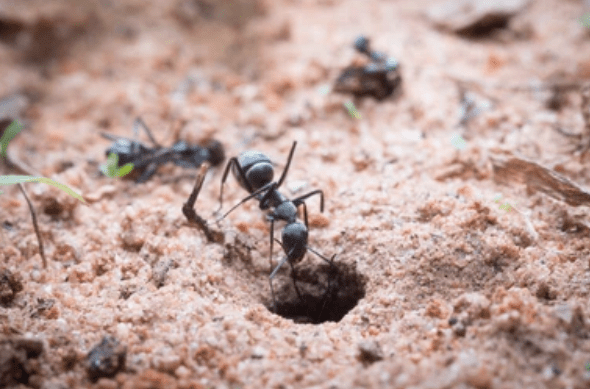
Ants as Natural Pest Controllers
A. Predatory Behavior of Ants
Supporting ants in your garden not only contributes to soil fertility, but also serves as a natural form of pest control. Ants are known predators of many common garden pests, such as caterpillars, aphids, and other insect larvae. By allowing ants to thrive in your garden, you are creating a natural balance that helps to control and reduce the population of harmful pests. This can ultimately lead to healthier and more productive plants, without the need for harmful chemical pesticides. Embrace the role of ants as natural pest controllers and witness the positive impact on the overall health and vitality of your garden. By supporting these tiny yet mighty creatures, you are promoting a natural and sustainable approach to pest management, while also contributing to the health and diversity of your garden ecosystem. So instead of viewing ants as a nuisance, recognize the valuable role they play in keeping your garden pest-free and thriving.
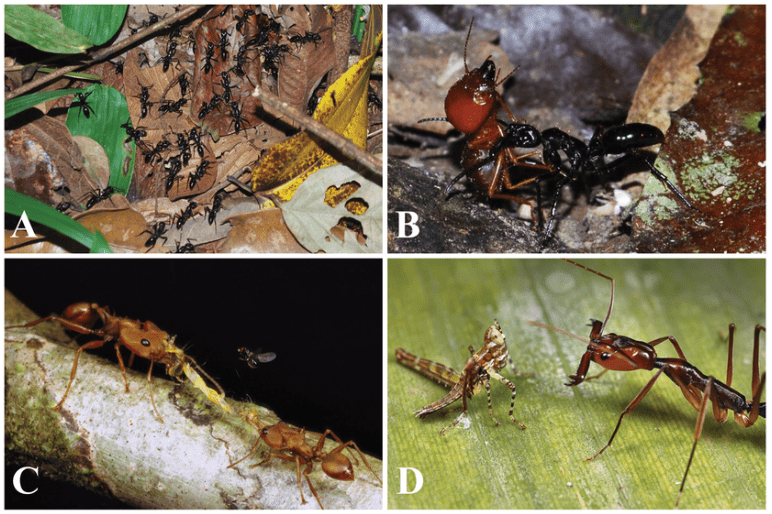
B. Ant-Aphid Relationships
Ant-aphid relationships are a fascinating example of mutualism in nature. Aphids produce a sweet substance called honeydew, which is a valuable food source for ants. In return, ants protect aphids from predators and even “milk” them for honeydew by gently stroking their bodies to stimulate the production of this sugary substance. This mutually beneficial relationship benefits both ants and aphids, as the ants gain a reliable food source and the aphids receive protection and care. By recognizing and appreciating the symbiotic relationship between ants and aphids, we can gain a greater appreciation for the interconnectedness and complexity of the natural world. So let’s celebrate this remarkable example of cooperation and mutual benefit, and continue to support the thriving ecosystem in our gardens.
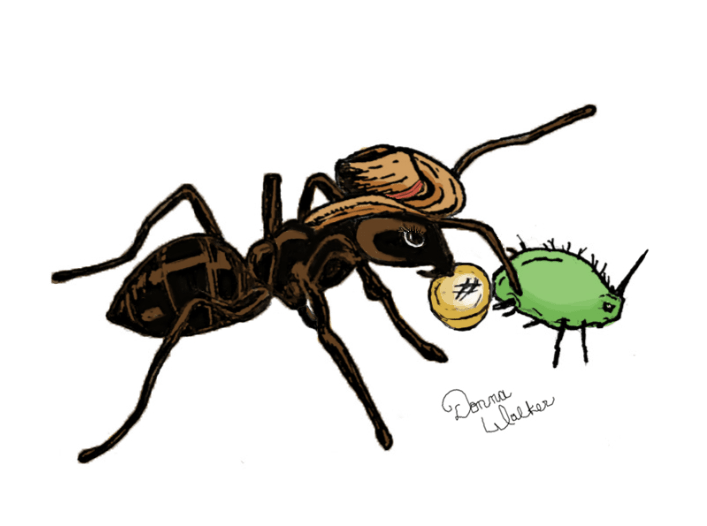
C. Encouraging Beneficial Insect Populations
We should all be actively promoting the presence of beneficial insects in our gardens and natural environments. These insects play a crucial role in controlling pests and maintaining the health of our plants. By encouraging beneficial insect populations, we can reduce the need for harmful chemical pesticides and create a more balanced and sustainable ecosystem.
Ladybugs, lacewings, and parasitic wasps are just a few examples of beneficial insects that feed on harmful pests such as aphids, mites, and caterpillars. By providing these insects with the resources they need, such as nectar-producing plants and shelter, we can attract and support their populations in our gardens.
Not only do beneficial insects help to keep our gardens healthy, but they also contribute to the overall biodiversity and resilience of our environment. By recognizing the value of these insects and taking steps to promote their presence, we can contribute to the health and sustainability of our natural world.
So let’s work together to create a welcoming environment for beneficial insects, and reap the rewards of a thriving and balanced ecosystem in our gardens. It’s a win-win for both us and the natural world!
Ants and Nutrient Cycling
A. Decomposition and Organic Matter Breakdown
Let’s talk about the important role that ants play in nutrient cycling and organic matter breakdown. Ants are key players in the decomposition process, as they help break down dead plant material and other organic matter, releasing nutrients back into the soil. This nutrient cycling is crucial for the health and fertility of our garden soil, as it provides essential nutrients for plant growth.
By promoting the presence of ants in our gardens, we can support this important process and ensure that our soil remains healthy and productive. Providing ants with suitable habitats, such as leaf litter and mulch, can help to attract and support their populations. By doing so, we can harness the power of these tiny but mighty creatures to contribute to the overall health and sustainability of our garden ecosystem.
So let’s embrace the role of ants in nutrient cycling and organic matter breakdown, and work to create a welcoming environment for these valuable contributors to our garden ecosystem. Together, we can ensure that our gardens remain vibrant and thriving, thanks to the essential work of ants in nutrient cycling. It’s a simple but impactful way to support the health of our gardens and the environment as a whole.
B. Ants as Soil Engineers
Ants as Soil Engineers play a crucial role in maintaining the health of our gardens. They are natural soil engineers, breaking down organic matter and cycling nutrients, which is essential for the growth of healthy plants. By creating a habitat that supports ants, we are essentially promoting a natural and sustainable way to maintain the fertility and productivity of our garden soil.
So let’s not overlook the importance of ants in our garden ecosystems. Let’s embrace their role and work to create a welcoming environment for them. By doing so, we are not only supporting the health of our gardens but also contributing to the overall health of our planet. It’s a small but impactful step that can make a big difference in the long run. Let’s give ants the credit they deserve and harness their power to create thriving and sustainable gardens.
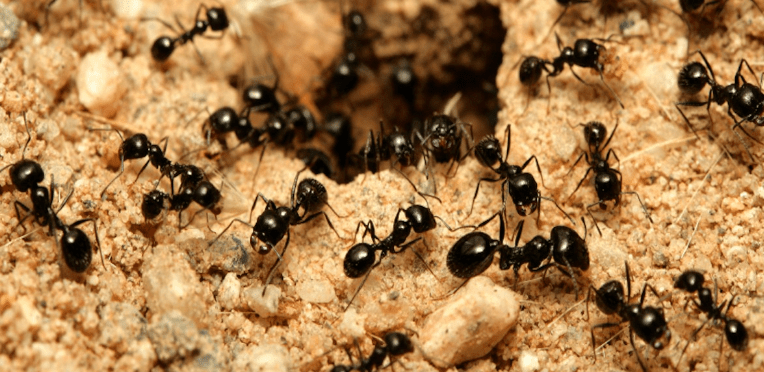
C. Enhancing Plant Growth through Nutrient Redistribution and Soil Aeration:
Ants play a crucial role in redistributing nutrients and aerating the soil, which directly benefits the growth and health of our plants. By creating a habitat that supports ants, we are essentially promoting a natural and sustainable way to maintain the fertility and productivity of our garden soil. So let’s not overlook the importance of ants in our garden ecosystems. Let’s embrace their role and work to create a welcoming environment for them. By doing so, we are not only supporting the health of our gardens but also contributing to the overall health of our planet. It’s a small but impactful step that can make a big difference in the long run. Let’s give ants the credit they deserve and harness their power to create thriving and sustainable gardens.
Managing Ants in the Garden
A. Maintaining a Healthy Ant Population
Maintaining a Healthy Ant Population is crucial for the overall health of our garden ecosystem. Ants play a vital role in aerating the soil, dispersing seeds, and controlling pests. By creating a habitat that supports ants, we are promoting a natural and sustainable way to maintain the fertility and productivity of our garden soil. Let’s not overlook the importance of ants in our garden ecosystems. Let’s embrace their role and work to create a welcoming environment for them. By doing so, we are not only supporting the health of our gardens but also contributing to the overall health of our planet. It’s a small but impactful step that can make a big difference in the long run. Let’s give ants the credit they deserve and harness their power to create thriving and sustainable gardens.
B. Dealing with Ant-Related Challenges
Dealing with Ant-Related Challenges in a responsible and environmentally friendly manner is essential. Instead of resorting to harmful pesticides or other chemical solutions, let’s consider alternative methods that can effectively manage ant populations without causing harm to our garden ecosystems. By embracing natural solutions and working with the ants rather than against them, we can create a balanced and harmonious environment that benefits all living organisms. Let’s show appreciation for the valuable role that ants play in our gardens and work towards a sustainable and eco-friendly approach to managing any ant-related challenges. Together, we can create thriving and healthy gardens that support both plants and animals, including our industrious ant friends.
C. Encouraging a Balanced Ecosystem
Encouraging a balanced ecosystem is not just a choice, it’s a responsibility that we all must take seriously. We have a duty to protect and preserve the delicate balance of our environment, and that includes supporting a diverse and thriving ecosystem. By promoting biodiversity and embracing natural solutions, we can create a healthier and more sustainable environment for ourselves and future generations. Let’s work together to encourage a balanced ecosystem, where all living organisms can coexist harmoniously and thrive. It’s time to prioritize the well-being of our planet and the creatures that call it home. Together, we can make a positive impact and create a more sustainable future for all.
Integrating Ants into Sustainable Gardening Practices
A. Organic Gardening and Ants
Integrating ants into sustainable gardening practices is not only beneficial for the environment, but it also helps to create a healthier and more resilient garden. Ants play a vital role in maintaining soil health and crop productivity, as they help to aerate the soil and control pest populations. By practicing organic gardening methods and embracing the presence of ants, we can reduce the need for harmful pesticides and create a more natural and balanced ecosystem in our gardens.
Instead of viewing ants as pests, let’s acknowledge and appreciate the important role they play in our gardens. By working in harmony with nature and embracing the presence of ants, we can create a thriving and sustainable garden that benefits both the environment and our own well-being. Let’s prioritize the integration of ants into sustainable gardening practices and create a more natural and resilient ecosystem. Together, we can make a positive impact and contribute to a healthier planet for all.
B. Companion Planting with Ants
Let’s welcome ants into our gardens and embrace their presence as valuable contributors to our ecosystem. By practicing organic gardening methods and allowing ants to aerate the soil and control pest populations, we can reduce our reliance on harmful pesticides and create a more natural and balanced environment. Instead of seeing ants as pests, let’s recognize the important role they play in maintaining soil health and crop productivity.
Companion planting with ants can help create a thriving and sustainable garden that benefits both the environment and our own well-being. Let’s prioritize the integration of ants into our sustainable gardening practices and work in harmony with nature to create a more resilient ecosystem. Together, we can make a positive impact and contribute to a healthier planet for all. Embrace the presence of ants in your garden and let’s create a more natural and sustainable future.
In conclusion, ants are not just pesky insects, but they can actually be beneficial for your garden. They aerate the soil, improve drainage, and help to break down organic matter, all of which contribute to healthier and more fertile soil. So, next time you see ants in your garden, don’t be so quick to get rid of them. Embrace their presence and let them work their magic to improve the health of your garden soil. Your plants will thank you for it!
Frequently Asked Questions (FAQs)
Ants help to aerate the soil by tunneling through it, which allows for better water and nutrient absorption by plant roots. They also break down organic matter, helping to improve soil structure and fertility.
While most ants can contribute to soil health, some species, like fire ants, can be harmful to plants and should be managed carefully.
Providing a diverse range of plants and minimizing pesticide use can help attract and support beneficial ant populations in your garden.
Some ant species can protect pests like aphids, so it’s important to monitor ant activity and manage any potential pest problems.
While some ants can protect pests, most do not directly damage plants. However, it’s important to monitor ant activity and address any issues that may arise.
Using natural deterrents like diatomaceous earth, cinnamon, or citrus peels can help discourage ants from nesting in unwanted areas without harming beneficial insect populations.
As long as the ant populations are managed and monitored, having ants in a vegetable garden can actually be beneficial for soil health and plant growth.
Monitoring plant health, soil structure, and pest populations can help determine whether ants are having a positive or negative impact on your garden.
